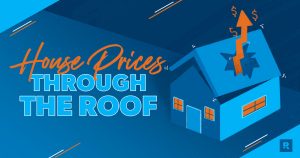Grace Cary/ Getty Images; Illustration by Austin Courregé/Bankrate
Our writers and editors used an in-house natural language generation platform to assist with portions of this article, allowing them to focus on adding information that is uniquely helpful. The article was reviewed, fact-checked and edited by our editorial staff prior to publication.
Key takeaways
- FHA loans are available to any potential borrower who meets the qualifying criteria, while VA loans are only available to active-duty military, veterans and their surviving spouses.
- You can get a VA loan for no money down, but FHA loans require a down payment of at least 3.5 percent.
- FHA loans require an upfront and ongoing mortgage insurance premium, while VA loans require an upfront funding fee.
Both FHA and VA home loans come with attractive benefits, including flexible lending guidelines, often-competitive interest rates and low down payments. Here’s everything you need to know about the differences between FHA loans and VA loans.
FHA loans vs. VA loans
| FHA loan | VA loan | |
|---|---|---|
| Eligibility | Anyone who meets FHA loan requirements | Active-duty military service members, veterans and spouses |
| Property type | Primary residence | Primary residence |
| Down payment | At least 3.5% | No down payment required |
| Credit score | As low as 500 | No requirement, but lenders prefer scores of 620 or higher |
| DTI ratio | Up to 50% | Up to 41% |
| Mortgage insurance | Upfront and ongoing mortgage insurance premiums (MIP) | Upfront funding fee |
| Current interest rate (30-year fixed-rate purchase) | FHA loan rates | VA loan rates |
| Loan limits | $472,030 for low-cost areas; $1,089,300 for high-cost areas | No limit on loans over $144,000 with full entitlement; varies by county with partial entitlement |
What are FHA vs. VA loans?
FHA and VA loans are government-backed loans issued by private lenders to qualifying borrowers. FHA loans are insured by the Federal Housing Administration (FHA) and have lower minimum credit score and down payment requirements compared to conventional loans. VA loans, which are granted to U.S. military veterans, service members and surviving spouses by private lenders, are guaranteed by the U.S. Department of Veterans Affairs. VA loans do not require a down payment and usually have more lenient credit requirements, making it easier to qualify for a loan with a poor credit history or a small down payment.
Eligibility for FHA vs. VA loans
Anyone who meets the credit score, down payment and DTI ratio requirements can apply for an FHA purchase or refinance loan. To get a VA loan, you must be active-duty military, a veteran or military spouse. You’ll also need a certificate of eligibility (COE).
Down payment for FHA vs. VA loans
The down payment for an FHA loan is at least 3.5 percent. If your credit score is between 500 and 579, you’ll need a 10 percent down payment. By comparison, a VA loan can be had for no money down.
Credit score for FHA vs. VA loans
The VA doesn’t have minimum credit score criteria. Many VA lenders, though, like to see a credit score of at least 620. If your score is lower, you might still be able to get a loan, but the terms will likely be less generous. The FHA allows for a lower credit score: as low as 580 (or 500 with a 10 percent down payment).
Mortgage insurance for FHA vs. VA loans
With an FHA loan, even on a refinance, you pay an upfront fee, plus an ongoing mortgage insurance premium. The idea is that if you default on the loan, the lender is reimbursed from the mortgage insurance fund.
You don’t pay mortgage insurance with VA loan purchase or refinance loans. Instead, you pay an upfront funding fee based on your loan amount and your military service, as well as other factors.
With both types of loans, you can choose to pay the fee separately or roll the fee into the total cost of the loan.
Loan limits for FHA vs. VA loans
FHA loan limits vary based on the type of property and the location, with different limits for low-cost areas and high-cost areas. In 2023, the FHA loan limits for single-family homes range from $472,030 to $1,089,300, with the former being for low-cost areas and the latter being for high-cost areas.
VA loan limits vary based on the county you live in, the type of residence and if you have full VA entitlement. Veterans, service members and surviving spouses with complete entitlement can borrow more than $144,000 without any limits. For VA borrowers with remaining entitlement, the loan limit is determined by their county of residence.
Mortgage rates for FHA vs. VA loans
Both loan programs can sometimes offer appealing rates. As of Nov. 27, 2023, the average 30-year FHA APR was 7.67 percent, compared to 7.02 percent for a 30-year VA loan, according to Bankrate. In contrast, the average interest rate for a 30-year conventional loan was 7.81 percent.
FHA vs. VA loan refinancing
If you meet the qualifying criteria, you can refinance either an FHA or VA loan, or refinance another type of loan into one of these types of loans, to lower your interest rate, shorten your loan term or take cash out. Both programs have a “streamline” option that minimizes paperwork and underwriting.
Pros and cons of FHA vs. VA loans
FHA loans and VA loans each come with their own sets of pros and cons to weigh.
Pros and cons of FHA loans
Pros
- Low minimum down payment requirement of 3.5 percent
- Low minimum credit score requirements (580 with 3.5 percent down or 500 with 10 percent down)
- Likely easier to qualify for, meaning you can become a homeowner faster
Cons
- Has loan limits that cap how much you can borrow, which vary depending on your home’s location
- Has upfront and annual mortgage insurance premiums
- Must meet FHA’s minimum property requirements to qualify
Pros and cons of a VA loan
Pros
- No down payment required
- No mortgage insurance
- Low closing costs
- Often charges lower interest rates
- No prepayment penalties if you pay off your loan early
Cons
- Must pay a required VA funding fee
- Less flexibility to waive certain contingencies, like a home inspection
- Limits to what type of property you can purchase (intended for primary residence)
Should you get an FHA loan or VA loan?
Although FHA loans are accessible to more borrowers, VA loans could be the better option, as the terms are more generous. You could qualify for a VA loan with no money down, and the interest rates are often lower compared to FHA loans. Of course, you need to have military service (or be a military spouse) to be eligible for a VA loan. If you don’t qualify for a VA loan, an FHA loan could be a viable alternative if you don’t meet the requirements for a conventional loan.
Read the full article here










